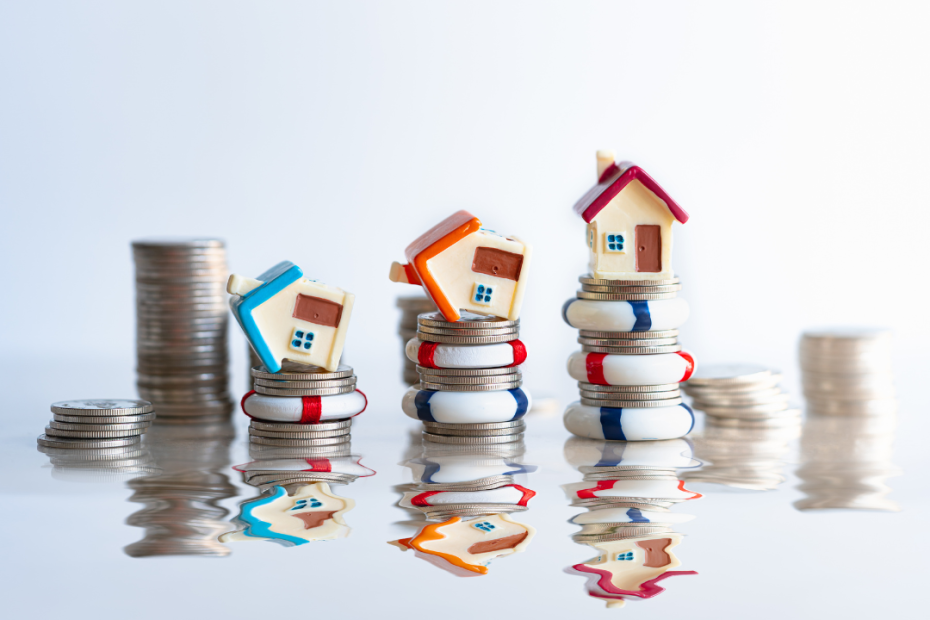If your home insurance premiums seem to be going up every year at renewal, you’re not hallucinating. Rates are adjusted on a regular basis to reflect the continuously changing risk environment.
The cost of house insurance has risen by 59 per cent over the last decade. So, why are costs increasing? What can you do to keep your coverage low-cost?
Why Did My Insurance Rates Rise?
The premium you pay is determined by a number of factors. Some you can influence, while others you can’t. These are the 11 reasons homeowners’ insurance premiums rise.
You’ve Made a Claim
If your insurance premiums rise, the first place to check is your claims history. Even a minor claim can result in significant hikes and remain on your record for years. Non-catastrophic claims raise your rates more than claims related to natural catastrophes because of the way they are calculated. This includes events like:
- Flood damage from burst pipes and appliances
- Liability.
- House fires.
- Theft.
- Dog bites.
Your Company Has Paid Out a Lot of Claims
Insurance utilizes the law of large numbers to spread risk across many properties while lowering premiums. However, when a carrier sees a year with more claims than expected, it must raise rates to cover expenses and operating costs. If your area was devastated by a hurricane last year, you can anticipate increased rates this year.
Your Insurance Company Covers Too Many Homes in Your Area
If an insurance company already insures too many properties in your region, it may raise rates to reduce its concentration. Once again, spreading out the risk helps ensure that the business can fulfil its claims obligations in the event of a large calamity and keep homeowner costs low.
You’ve Missed Out on Discounts
Look for any discounts that may have been missed in your new homeowner’s insurance policy. If you didn’t provide proof of safety equipment, these savings might be revoked, raising your premiums. It’s simple to remedy – just contact your provider and send the discount documentation.
Inflation
If your insurance thresholds were adjusted to reflect inflation and the expense of rebuilding your house, your rates will most likely rise. The overall 2019 rate of inflation was 1.81 per cent, however, increases in construction costs in your region may result in higher or lower premiums. The more it costs to restore your home, the more expensive insurance becomes.
You Just Purchased a Swimming Pool or a Trampoline
In the business, these “attractive nuisances” are known as “nuisance attractions.” Swingsets, treehouses, trampolines, swimming pools, and slides are just a few examples. They might also invite intruders and place you at risk of liability if your uninvited guests are injured while visiting your yard.
You’ve Made Some Large House Repairs
Home improvements raise the value of your property and can also raise how much it would cost to restore it. That is, of course, unless you’re living in a rental house or a mobile home park that has flood insurance coverage. As you might guess, premiums will rise as a result. It’s especially true if the upgrades increase the square footage or improve the quality of a room, such as from particle board cabinets to custom cherrywood ones. If you have a claim, replacing them becomes more expensive.
Your Credit Score Has Dropped
In some states, insurers are permitted to take your credit score in to account when setting your rates. Your insurance premiums will be lower if your credit is good. If your credit rating falls, your insurance premium might rise. The good news is that by paying their bills on time and lowering their credit card debt (ideally to 30 per cent usage!), individuals can boost their scores!
You’ve Adopted a Dog
Some breeds are regarded as “good” or “bad” dogs. Some dog breeds, like the German shepherd, have a higher insurance cost due to the potential for bite injuries. The average cost of a dog bite claim is $33,230.
As your policy approaches renewal, it may be aggravating to notice a slightly bigger premium than you were charged the year before. However, recall that all firms increase rates every year somewhat. If you’re considering switching plans, make sure you’re not giving up coverage for a lesser price.
Your Roof Is Aging
Your roof protects everything underneath it. It no longer performs its function as well as it once did with age. An older roof is more prone to leaks and wind damage and is more susceptible to hurricane damage.
You Have Out-Of-Date Electrical, Plumbing, and Heating/AC Cooling Systems
If your home is older, outdated systems can increase your insurance premiums (or make it impossible to obtain coverage at all). Electrical, HVAC, and plumbing improvements not only make your house safer but may also help you save money on homeowners insurance in the long run.
